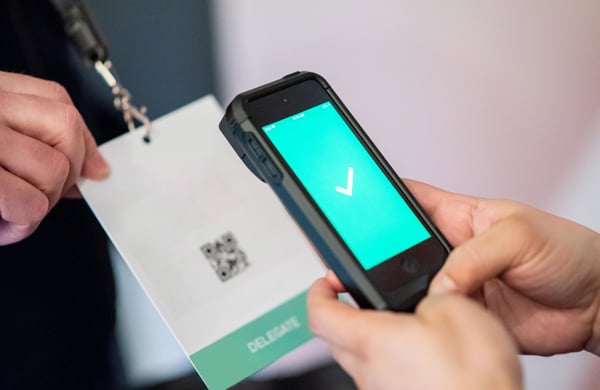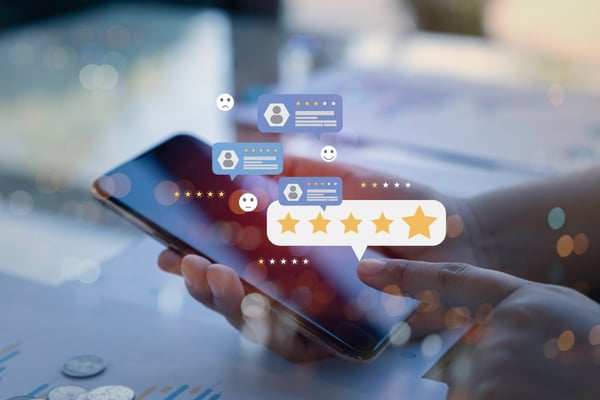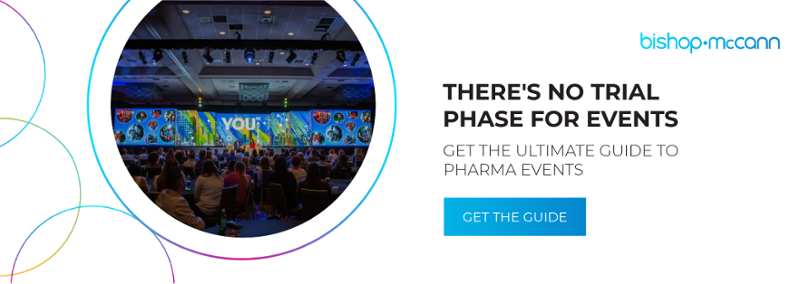 The pharmaceutical industry runs on many things, but data and feedback are among the most important. And while events are also a key component to moving new drugs and medications through development stages, event planning isn’t always in a pharmaceutical company’s wheelhouse.
The pharmaceutical industry runs on many things, but data and feedback are among the most important. And while events are also a key component to moving new drugs and medications through development stages, event planning isn’t always in a pharmaceutical company’s wheelhouse.
Gathering data and feedback is as vital to event planning as any other aspect of development. Whether it’s applied in real time or for future programs, understanding the best ways to capture that data at a pharmaceutical meeting or event is the first step.
Quick Links
- How Event Feedback Helps Pharma Event Organizers
- Six Ways to Collect Pharma Event Feedback and Data
- Drive Event Success with Additional Insight and Experience
How Event Feedback Helps Pharma Event Organizers
The pharma industry understands how important data is. No product launch, clinical trial, or sales meeting occurs until all the data is in. From the start, there’s a significant investment in every aspect of research and development, and unfortunately, some of those investments don’t make it to the launch phase. Every step of the way, pharmaceutical companies need to be maximizing and optimizing their investments.
But just because pharma is high stakes doesn’t mean it needs to be high risk – especially when it comes to events. Whether it’s a new line of products or a pharmaceutical event, ROI is paramount, and there’s no way to know if your investment is a success without gathering event feedback and data.
For example, suppose the goal of your pharmaceutical meeting is to prepare your sales team to discuss a new medication with HCPs. In that case, it’s essential to your investment that the training be valuable. Event feedback can help you determine if your goal was achieved and if the sales team found the information helpful.
Six Ways to Collect Pharma Event Feedback and Data
So just how do you go about collecting that data? Thankfully, there are plenty of methods available, and a few of them may already be in place. You just need to leverage the data you already have and the tools you’re already using.
1. Event Registration
Event registration is more than just having attendees fill out a form, so you can check them in on arrival. You can gather valuable data from registration information, and we’re not just talking demographics, though those can be helpful. When you design the registration form, first and foremost, consider what data you want and need.
Online registration means you’re receiving all sorts of data from device type (helpful to see if you’ll get good event app adoption) to the times and days your attendees are most active online. Need to send out a reminder, announcements, or promotion? Use that data to get better results.
Pre-Event Survey (could be added to the Event Registration info above, b/c likely best to ask these questions during registration rather than launch separate survey).
Consider asking attendees questions such as which speaker/session are you most interested in attending, what are you hoping to get out of this program, or is there any component of the event you would like more information on?
2. Attendee Tracking
Due to the needs of your event, you’re likely already tracking attendee activity. Whether you’re using a mobile check in via an event app, RFID, or more advanced event tech, you’ll have a pretty good sense of who was where and when. That can help you with everything from scheduling and venue selection to speakers and sessions.
Similarly, QR codes can be used, though they may be less reliable as they require attendees to access the codes whereas an RFID sensor in a badge or wristband can deliver more reliable data.
 3. Monitoring Communication Channels or Social Media
3. Monitoring Communication Channels or Social Media
If you’ve created channels on your event app and ways for your attendees to communicate amongst one another (particularly valuable for hybrid audiences), then monitoring those channels is a great way to see what’s creating buzz…and what isn’t. Similarly, if social media is appropriate for your attendees, pay attention to what they’re sharing and, again, what they aren’t. This will help you discover what’s valuable to your attendees.
Encourage speakers who are presenting during the program to self-promote their sessions via social media and provide content, images, and appropriate hashtags that they can easily access.
4. Communicate Directly with Attendees
As you move through the event, after sessions, meals, activities, or speaker sessions, s, you can always talk directly to attendees and ask their opinion directly. Remember to ask open ended questions as well so the feedback you get provides you higher quality information. Also, make it conversational. Attendees do not want to feel like they’re being grilled or put on the spot. Consider asking for in the moment feedback with a quick push notification asking attendees to rate their previous session or speaker.
5. In-Event Surveys
Especially if you've got a a multi-day program or conference, longer event, you may want to send out event surveys during the event so you can check in on attendee experience and address shortcomings on the fly or capitalize on wins. Further, you may get valuable information regarding how you can better allocate resources or adjust locations based on needs. This is even easier if you’ve got an event app where you can send out a quick one or two question poll.
6. Post-Event Surveys
After your event, remember to send out post-event feedback surveys. Post-event surveys and feedback can help you as you plan your next event, allowing you to repeat successes and address issues. Additionally, post-event surveys can help you determine whether or not your event met its objectives, and help you determine ROI.
 Drive Event Success with Additional Insight and Experience
Drive Event Success with Additional Insight and Experience
As mentioned earlier, the pharmaceutical industry is one that values data and analysis to drive decision making. The same values exist in the events industry. Making pharmaceutical events better means applying experience and expertise to event needs and challenges. It means applying previously collected data and adjusting to decrease friction. As with a clinical trial, it means ongoing efforts to gather data to create a clear picture.
It also means having a clear understanding on how to act on the insights gleaned from data. When it comes to pharmaceuticals, you call in HCPs. When it comes to events, you call in an event partner, like Bishop-McCann, who has three decades of experience with the pharmaceutical industry. That means not only can we work with your goals and any attendee data you already have, but we can also apply our experience to provide opportunities and solutions that can help improve not just the attendee experience, but also ensure the return on your event investment.
If you’re ready to talk about how, get in touch with our team today and let’s start planning.
